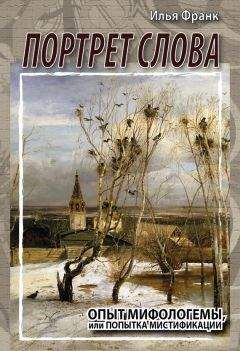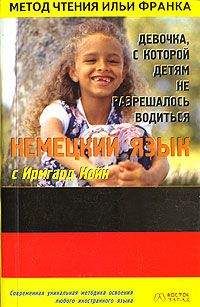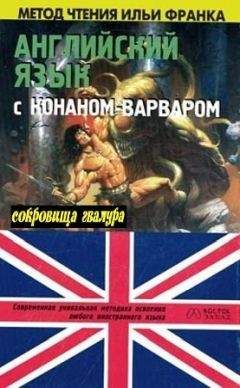Илья Франк - Английский язык с Э. Хемингуэем. Старик и море
Все авторские права соблюдены. Напишите нам, если Вы не согласны.
Описание книги "Английский язык с Э. Хемингуэем. Старик и море"
Описание и краткое содержание "Английский язык с Э. Хемингуэем. Старик и море" читать бесплатно онлайн.
But, he thought, I keep them with precision (но, подумал он, я держу их точно = закидываю приманку точно; precision — точность, правильность). Only I have no luck any more (только мне больше не везет). But who knows (но кто знает)? Maybe today (может, сегодня). Every day is a new day (каждый день — новый день). It is better to be lucky (лучше быть удачливым = хорошо, когда везет). But I would rather be exact (но я лучше буду точным; exact — точный, правильный). Then when luck comes you are ready (тогда, когда приходит удача, ты готов к ней).
toward [tq'wLd], precision [prI'sIZ(q)n], exact [Ig'zxkt]
The sun rose thinly from the sea and the old man could see the other boats, low on the water and well in toward the shore, spread out across the current. Then the sun was brighter and the glare came on the water and then, as it rose clear, the flat sea sent it back at his eyes so that it hurt sharply and he rowed without looking into it. He looked down into the water and watched the lines that went straight down into the dark of the water. He kept them straighter than anyone did, so that at each level in the darkness of the stream there would be a bait waiting exactly where he wished it to be for any fish that swam there. Others let them drift with the current and sometimes they were at sixty fathoms when the fishermen thought they were at a hundred.
But, he thought, I keep them with precision. Only I have no luck any more. But who knows? Maybe today. Every day is a new day. It is better to be lucky. But I would rather be exact. Then when luck comes you are ready.
The sun was two hours higher now (солнце было теперь на два часа выше) and it did not hurt his eyes so much to look into the east (и было уже не так больно глазам смотреть на восток). There were only three boats in sight now (было видно только три лодки; sight — поле зрения, видимость) and they showed very low and far inshore (и, казалось, что они очень низко /сидят/ в воде и очень близко /находятся/ к берегу; inshore — у берега, близко к берегу).
All my life the early sun has hurt my eyes (всю мою жизнь раннее солнце причиняло боль моим глазам), he thought. Yet they are still good (но они все еще хороши). In the evening I can look straight into it without getting the blackness (вечером я могу смотреть прямо на него, без черных пятен перед глазами: «не получая черноты»). It has more force in the evening too (вечером в нем больше силы). But in the morning it is painful (но утром оно болезненное; painful — причиняющий боль, болезненный).
Just then he saw a man-of-war bird with his long black wings circling in the sky ahead of him (именно тогда он увидел птицу-фрегата с длинными черными крыльями, которая кружила в небе впереди него; man-of-war bird — /зоол./ фрегат; man-of-war — военный корабль; ahead — вперёд, впереди). He made a quick drop (она сделала быстрое снижение = пошла круто вниз), slanting down on his back-swept wings (скользя наклонно вниз на заведенных назад крыльях; to slant — двигаться наклонно, под углом; to sweep — мести; сметать, отметать), and then circled again (а потом снова закружила).
"He's got something (он что-то нашел)," the old man said aloud (сказал старик вслух). "He's not just looking (он не просто смотрит)."
inshore [In'SL], circle [sWkl], ahead [q'hed]
The sun was two hours higher now and it did not hurt his eyes so much to look into the east. There were only three boats in sight now and they showed very low and far inshore.
All my life the early sun has hurt my eyes, he thought. Yet they are still good. In the evening I can look straight into it without getting the blackness. It has more force in the evening too. But in the morning it is painful.
Just then he saw a man-of-war bird with his long black wings circling in the sky ahead of him. He made a quick drop, slanting down on his back-swept wings, and then circled again.
"He's got something," the old man said aloud. "He's not just looking."
He rowed slowly and steadily toward where the bird was circling (он греб медленно и монотонно к тому месту, где кружила птица). He did not hurry (он не спешил) and he kept his lines straight up and down (и держал лесы прямыми; up and down — вверх и вниз; вертикально). But he crowded the current a little (но он несколько быстрее пошел по течению; to crowd /on/ sail — спешить, идти на всех парусах) so that he was still fishing correctly (так что он все еще рыбачил правильно) though faster than he would have fished if he was not trying to use the bird (хотя быстрее, чем он бы рыбачил, если бы не пытался использовать птицу).
The bird went higher in the air and circled again (птица поднялась выше в воздух и снова закружила), his wings motionless (ее крылья /были при этом/ неподвижны). Then he dove suddenly (затем она неожиданно нырнула; to dive — нырять) and the old man saw flying fish spurt out of the water (и старик увидел, как летучая рыба выпрыгнула из воды; to spurt out — бить струей, выбрасывать /пламя/) and sail desperately over the surface (и отчаянно поплыла по поверхности).
"Dolphin (дорадо)," the old man said aloud (сказал вслух). "Big dolphin (крупная дорадо)."
hurry ['hArI], dove [dquv], desperately ['despqrqtlI]
He rowed slowly and steadily toward where the bird was circling. He did not hurry and he kept his lines straight up and down. But he crowded the current a little so that he was still fishing correctly though faster than he would have fished if he was not trying to use the bird.
The bird went higher in the air and circled again, his wings motionless. Then he dove suddenly and the old man saw flying fish spurt out of the water and sail desperately over the surface.
"Dolphin," the old man said aloud. "Big dolphin."
He shipped his oars (он поднял весла на борт; to ship — поднимать /весла/ на борт) and brought a small line from under the bow (и достал небольшую лесу из-под настила на носу лодки). It had a wire leader and a medium-sized hook (на ней была проволока и среднего размера крючок) and he baited it with one of the sardines (и он насадил на него одну из сардин). He let it go over the side and then made it fast to a ring bolt in the stern (он закинул ее /леску/ за борт и затем прикрепил к шурупу с ушком в корме). Then he baited another line and left it coiled in the shade of the bow (затем он насадил наживку на другую лесу и оставил ее свернутой в тени носа лодки). He went back to rowing and to watching the long-winged black bird who was working, now, low over the water (он продолжил грести и наблюдать за длиннокрылой черной птицей, которая работала = передвигалась/охотилась сейчас низко над водой).
As he watched the bird dipped again slanting his wings for the dive (пока он наблюдал, птица снова нырнула в воду, сложив крылья для погружения; to slant — отклонять) and then swinging them wildly and ineffectually as he followed the flying fish (и затем махая ими неистово и неэффективно, пока она следовала за летучей рыбой = пытаясь догнать летучую рыбу). The old man could see the slight bulge in the water (старик видел небольшую выпуклость в воде = как вода слегка вздымалась; slight — небольшой, незначительный; bulge — выпуклость, округлый выступ) that the big dolphin raised as they followed the escaping fish (которую поднимала крупная дорадо, гонясь за убегающей рыбой; to escape — убегать, спасаться бегством). The dolphin were cutting through the water below the flight of the fish (дорадо шла ей наперерез под /линией/ полета птицы; to cut — резать; сокращать путь, срезать) and would be in the water (и будет в воде), driving at speed (идя на скорости), when the fish dropped (когда рыба упадет). It is a big school of dolphin (это большая стая дорадо), he thought. They are widespread (они широко распространены = они плывут поодаль друг от друга) and the flying fish have little chance (и у летучей рыбы мало шансов). The bird has no chance (у птицы нет шансов). The flying fish are too big for him (летучая рыба слишком большая для нее) and they go too fast (и они слишком быстры).
ineffectually ["InI'fektjuqlI], bulge [bAlG], widespread ['waIdspred]
He shipped his oars and brought a small line from under the bow. It had a wire leader and a medium-sized hook and he baited it with one of the sardines. He let it go over the side and then made it fast to a ring bolt in the stern. Then he baited another line and left it coiled in the shade of the bow. He went back to rowing and to watching the long-winged black bird who was working, now, low over the water.
As he watched the bird dipped again slanting his wings for the dive and then swinging them wildly and ineffectually as he followed the flying fish. The old man could see the slight bulge in the water that the big dolphin raised as they followed the escaping fish. The dolphin were cutting through the water below the flight of the fish and would be in the water, driving at speed, when the fish dropped. It is a big school of dolphin, he thought. They are widespread and the flying fish have little chance. The bird has no chance. The flying fish are too big for him and they go too fast.
He watched the flying fish burst out again and again and the ineffectual movements of the bird (он наблюдал, как летучая рыба выпрыгивает снова и снова, и за бесплодными движениями птицы). That school has gotten away from me (эта стая ушла от меня; to get away — убежать), he thought. They are moving out too fast and too far (они движутся слишком быстро и слишком далеко). But perhaps I will pick up a stray (но, возможно, я поймаю отбившегося от стаи; stray — отбившийся от стада; to stray — сбиться с пути, заблудиться; отбиться) and perhaps my big fish is around them (и, может, моя большая рыба среди них = где-нибудь поблизости). My big fish must be somewhere (моя большая рыба должна где-то быть).
The clouds over the land now rose like mountains (облака над землей сейчас возвышались, словно горы; to rise) and the coast was only a long green line with the gray blue hills behind it (и побережье было всего лишь длинной зеленой линией с серо-голубыми холмами позади). The water was a dark blue now (вода была теперь темно-синей), so dark that it was almost purple (настолько темной, что она была почти фиолетовой). As he looked down into it he saw the red sifting of the plankton in the dark water (когда он посмотрел вниз в нее, он увидел красные переливы: «пересыпания» планктона в темной воде; to sift — просеивать, сыпать через сито) and the strange light the sun made now (и причудливый: «странный» свет, отбрасываемый сейчас солнцем). He watched his lines to see them go straight down out of sight into the water (он наблюдал за своими лесами, уходящими прямо вниз, скрываясь из виду, в воду) and he was happy to see so much plankton because it meant fish (и он был рад видеть так много планктона, потому что это означало рыбу = сулило рыбу). The strange light the sun made in the water (причудливый отсвет, который делало солнце в воде), now that the sun was higher (сейчас, когда солнце было выше), meant good weather (означал хорошую погоду) and so did the shape of the clouds over the land (об этом же говорила и форма облаков над землей). But the bird was almost out of sight now (но птица уже почти скрылась из виду) and nothing showed on the surface of the water (и ничего не показывалось на поверхности воды) but some patches of yellow, sun-bleached Sargasso weed (кроме нескольких клочков желтых выгоревших на солнце саргассовых водорослей; to bleach — белить, отбеливать) and the purple, formalized, iridescent, gelatinous bladder (и фиолетового переливчатого студенистого пузыря) of a Portuguese man-of-war floating close beside the boat (португальской физалии, плывшей поблизости позади лодки; close — закрытый; близкий /о времени и месте/; близко расположенный). It turned on its side and then righted itself (она перевернулась на бок, а затем снова выправила себя = приняла прежнее положение). It floated cheerfully as a bubble (она весело плыла, как пузырек) with its long deadly purple filaments trailing a yard behind it in the water (с ее длинными смертоносными фиолетовыми щупальцами, тянущимися сзади в воде на целый ярд; filament — нить; волокно; маленькая толика чего-либо; trail — тянуться сзади).
Подписывайтесь на наши страницы в социальных сетях.
Будьте в курсе последних книжных новинок, комментируйте, обсуждайте. Мы ждём Вас!
Похожие книги на "Английский язык с Э. Хемингуэем. Старик и море"
Книги похожие на "Английский язык с Э. Хемингуэем. Старик и море" читать онлайн или скачать бесплатно полные версии.
Мы рекомендуем Вам зарегистрироваться либо войти на сайт под своим именем.
Отзывы о "Илья Франк - Английский язык с Э. Хемингуэем. Старик и море"
Отзывы читателей о книге "Английский язык с Э. Хемингуэем. Старик и море", комментарии и мнения людей о произведении.










